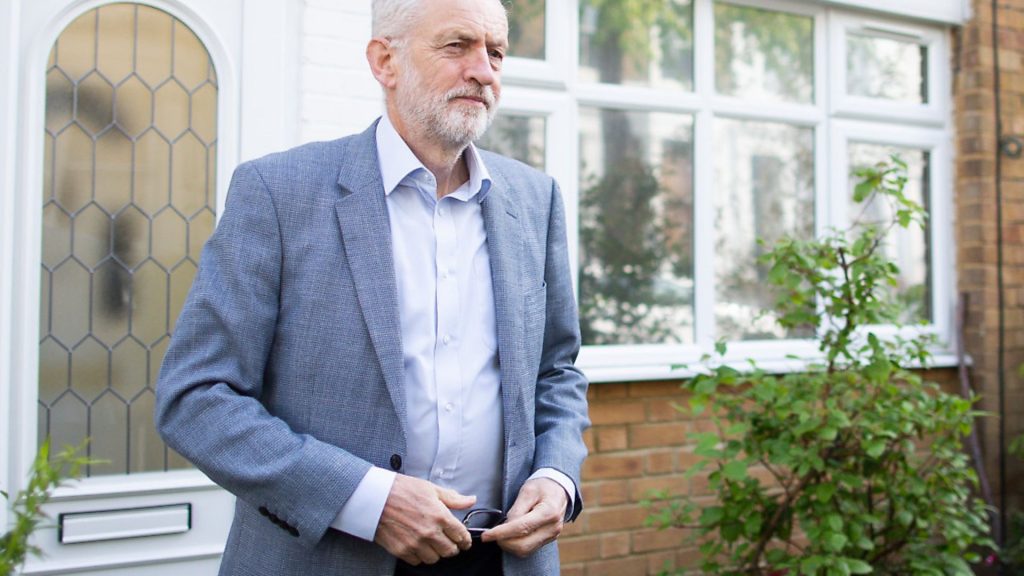
One of the reasons the Labour Party cannot embrace Remain is a reluctance to make common cause with controversial figures from its recent past. That has to stop, says ZOE WILLIAMS.

Sometimes, I believe they say in marriage therapy, you need to stop listening to the subtext and listen to what people are actually saying. I think about this a lot in relation to Jeremy Corbyn and his stance on Brexit.
No, I’ll try that again: I think about it in relation to the Brexiters in the Corbyn camp, or Lexiters, if you prefer. They are not huge in number: it remains the case that 86% of Labour members want a second vote. That poll has held for almost a year; it could scarcely get any higher without disrupting the laws of human variety, and it hasn’t dropped. Yet those still hoping for a fantasy Labour Brexit are very vocal: we spend a lot of time guessing what they think, when it would be more fruitful to listen.
So, we guess that they are merely hardcore Corbyn-loyalists, and they are responding to an anti-European signal he gives off, that only the faithful can fully hear.
Corbyn’s euroscepticism gets more and more fervent all the time, by this analysis. Now, we learn, he’s been anti-EU for decades, he’s spent his life fighting this vast technocracy, all those evenings by the fire with Tony Benn were whiled away in a plume of ‘socialism in one country’. This is a wilful distortion: over those decades, the EU has represented different things: Thatcher’s foe one year, the agent of her free market fundamentalism the next; scourge of dirty beaches and environmental degradation for a while, then callous creditor of a desperate Greece.
Anyone on the left who has paid any attention will have changed their view according to the actions of these institutions which are, after all, made up of 28 national governments whose own politics have changed significantly over these decades.
Lexiters, if they get specific, talk about EU rules which would prevent Corbyn enacting his socialist programme, but the argument does not stand up to scrutiny, particularly since the experience of Portugal’s socialist government, which has faced no EU obstacle it hasn’t been able to negotiate out of.
And sometimes, rarely, they talk about Mitterrand, cut off at the knee by the newly red raw pro-market agenda of the early 1990s: again, the UK was one of the main agents of derailing Mitterrand’s programme. It’s hardly a convincing line to take against the EU: “Look how it behaved when it listened to… erm… us.”
But what they talk about more than any of that is Tony Blair and assorted Blairites, of whom Tom Watson is currently ambassador. Tony Blair wants to remain in the EU, therefore to remain would be a neoliberal act; Watson claims internationalism as a “Labour value”, but what does he know about values, having supported the war against Iraq? New Labour oversaw decades of the policies which created the underlying conditions for the Leave vote: inequality, low wages, high housing costs, erosion of public services; therefore if you want to remain, not only are you disrespecting the valid anger of the victims of those policies, you are in active pursuit of a status quo that doesn’t even exist anymore, and besides, wasn’t static, but always getting worse.
It is very frustrating, as a Remainer on the left (Michael Chessum, national organiser of Another Europe is Possible, describes himself as “hard left, hard Remain”, which for simplicity works for me) to get caught in this swamp: the Leave programme is, as plain as day, coming from the hard right.
It began as an argument against immigrants, and led to a surge in racist abuse which has not abated. And it has morphed over time into a fight for deregulation, low taxes, a whole sweep of measures with the interests of capital at their core which would turn us over time into Singapore-in-the-Channel. Hard Brexiters are overwhelmingly likely to deny climate change and disagree with female emancipation; it is astonishing, though unsettlingly, not that astonishing, to find Brexit MEPs now want to cure homosexuality with ‘science’.
I doubt the Rees-Moggs and Johnsons of this world would even deny any of this in public, now that their gaze is focused so fixedly on the members of the Conservative party who will anoint the new prime minister; a wild bunch, who are prepared to take the break up of the United Kingdom and ensuing recession as a fair price for their dreams of sovereignty.
If anything should come naturally to the left, it is fighting this completely unabashed, utterly regressive agenda: yet once you do, you’re just another Blairite, yearning for the noughties, when everything was getting worse for everyone, but you were alright, Jack.
Tony Blair himself, recognising this, released a peculiar video (standing in front of a glass screen, like a Messiah getting ready for aqua aerobics) in which he took on this particular charge: New Labour, he said, was not the agent of social decay; his government was not part of one “unbroken line” from Thatcher to Cameron.
He pointed to investment in health and education; the national minimum wage; he rebutted the argument as “bad history”. There is, as ever, truth on both sides: without question, life was better for everyone but the medium to very rich under a Labour government.
The benefits regime was not punitive. Food banks barely existed. Local authorities had 40% more to spend. Public servants hadn’t laboured under an unending pay freeze, the NHS wasn’t struggling to keep stay above water.
Yet, equally, many of the underlying conditions which have come to a head under the Conservatives were seeded by New Labour. Housing, particularly, was a crisis waiting to happen, following a government which in its last spending review allocated 20 times more on housing benefit than on building new housing, never mind PFI and the labyrinthine provision of social housing which stripped tenants of democratic agency.
We could talk about financial deregulation, or the failure to address the conditions which were driving down wages; we could talk about a political culture which always wanted to focus on poor children, because it lacked the conceptual framework to talk about poor adults.
But if we accept this as an “unbroken line” from Thatcher to May, we are dismissing a decade of very real and life-changing hardship that hundreds of thousands of people have lived through since 2010, and even if you disregard the human implications of that, you’re still left with this logical problem: why is Blair so much worse, in the left’s imagination, than George Osborne, whose actual policies were destructive and, frankly, heartless, in a way that New Labour would never have countenanced?
Why, as the sociologist Will Davies asks, does the left constantly flip between a “structuralist account” when discussing the Conservative government, and a “voluntarist assumption” of poor leadership when they’re talking about New Labour?
In this reading, David Cameron is merely the iteration of a dying system, late-stage capitalism with its overweening finance, dead manufacturing and corroded workplace solidarity; Gordon Brown, meanwhile, and all who sailed with him, were personal actors, “who self‐interestedly and stupidly choose to accommodate themselves to the status quo” (as described in the same argument, deftly made, by another sociologist, Ben Jackson).
Plainly, if the structuralist account works at all – and I think it does – then it works across the piece, and all these politicians were acting within a context they did not create. But if we accept that, then we have to conclude that Labour was running a more pro-social show than the Conservatives, past or present, have ever run.
This terrain is complicated and profound, at a time when binary and simple answers feel more satisfying. I could never accept, for example, that a centre-left social democratic programme, which limited its ambitions to mitigating the negative effects of an ever more rapacious market, was the best we could do. I emphatically do not wish to go back to the turn of the century.
Disappointments and divisions on one’s own side are far more deeply felt and engrossing than anything the opposition might cook up. But this internecine wrangling has, inconveniently, come to a head with Brexit, and it needs to be resolved with the emphasis on speed rather than perfection.
The project to take us out of the EU is now non-linear.
It follows no accepted pathways of government, has no care for prosperity, peace or reason. It has unearthed agendas uglier than we’ve seen in living memory. It has no regard for cause and effect, has replaced argument with assertion.
It has derailed the basic presumptions of probity and accountability in public life. If Blairites and Lib Dems agree with all of this, that does not mean that, in opposing Brexit, you retrospectively place yourself in favour of the Iraq War and the Bedroom Tax. It means, no shit Sherlock. The farther to the right this spectacle moves, just by the laws of physics, the greater the spectrum, from hard left to centre-right, will find themselves called upon to resist. We have to do so in unison.










